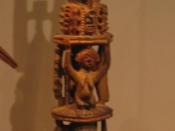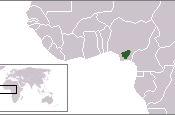Women in Africa
In many parts of Africa, there is a large discrepancy in who controlled the resources, access to the economy, individual autonomy and central voice in the government between the men and the women. African men, for the most part, have the largest say in the activities of the country. When issues of concern arise, 'men's issues' usually became the issues of national concern, and those issues pertinent to women go to the back of everyone's mind. Women are forced to accept the results of men's actions, and usually nothing gets accomplished that benefits them. Because women continually were overlooked, they began to come together and protest. If one examines the following women's protests and their outcomes: A.E. Afigbo's The Warrant Chiefs, Sylvia Leith-Ross' African Women, Jean Allman's 'Rounding Up Spinsters: Gender Chaos and Unmarried Women in Colonial Asante', and Irene Staunton's Mothers of the Revolution, several questions arise.
What were women seeking and how did this differ from what men wanted? Did women attain their goals, and if not, why not? If women were not successful in getting their concerns at the forefront of national interest, at what, if anything, were they successful?
In several instances women became so angered by their lack of voice, that they were moved to act. In some of these cases, women were relatively successful in organizing and mobilizing. The story of the Aba Riots, which is discussed in both The Warrant Chiefs and African Women, proves this point well. In Nigeria, in the late 1920's, the Warrant Chiefs wanted to impose a system of annual taxation. What was so displeasing to the people about the tax was that it involved a census, and that the money went towards no specific project. The concept of counting free people was a...


